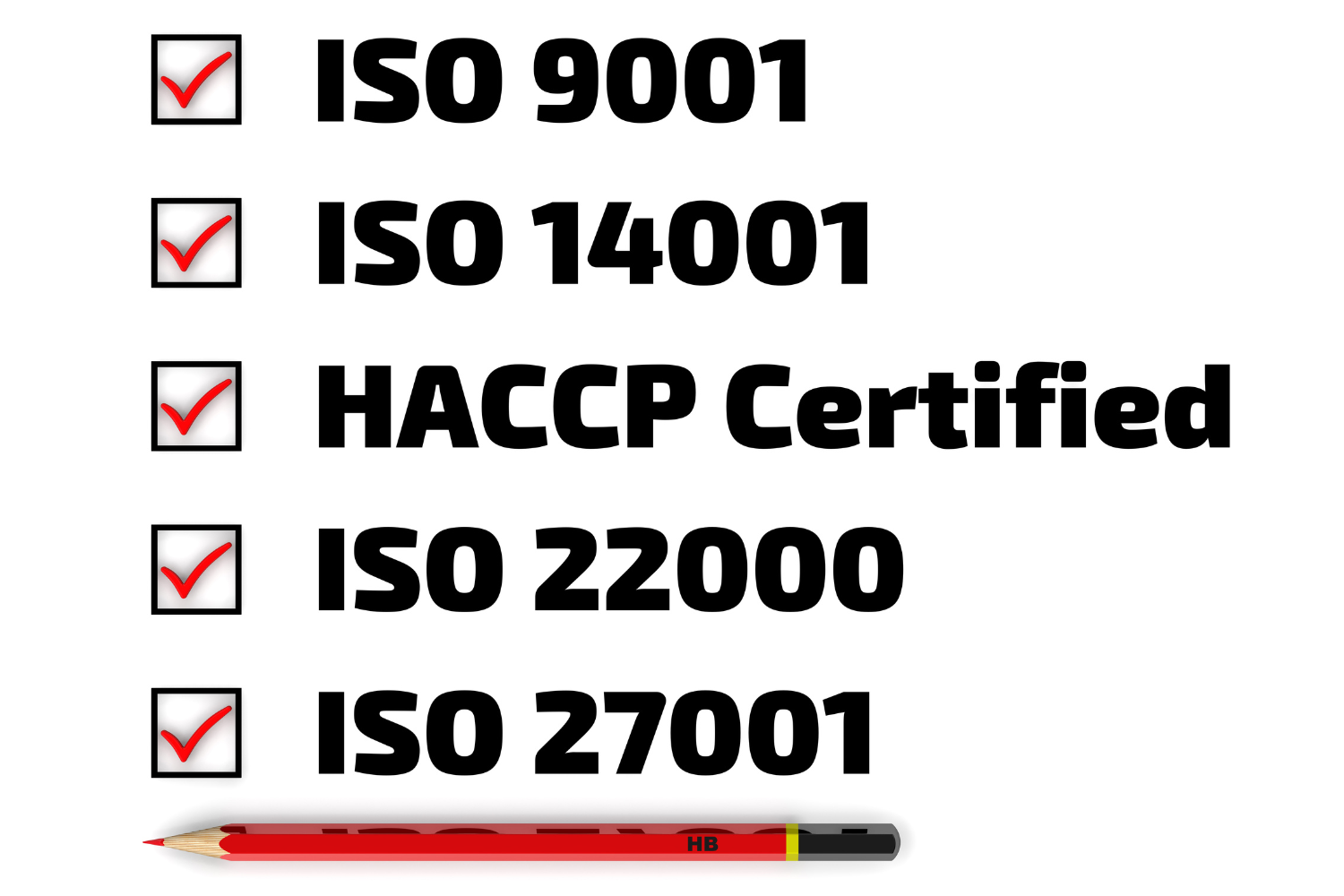Maintaining safety, quality, and compliance is paramount in the supplement and pharmaceutical industry. At the heart of these efforts lies cGMP, or Current Good Manufacturing Practices—a set of stringent guidelines established by regulatory agencies like the Food and Drug Administration (FDA) to ensure the manufacturing process consistently delivers products that meet safety and quality standards.
From dietary supplements to drug products and medical devices, cGMP applies across various industries, requiring manufacturers to employ appropriate processes, prevent contamination, and demonstrate compliance with critical regulations. Let’s find out what cGMP stands for, what its significance is in manufacturing, and how it safeguards patient safety and product integrity.

Table of Contents
ToggleWhat Does cGMP Stand For?
cGMP stands for Current Good Manufacturing Practices, a framework of guidelines that sets the minimum requirements for manufacturing processes in industries such as supplements, pharmaceuticals, and medical devices. The Food and Drug Administration (FDA) enforces these practices to ensure that products are consistently produced and meet strict quality standards for safety and reliability.
These good manufacturing practices cover various aspects of production, from sourcing raw materials to packaging the final product. By adhering to cGMP regulations, manufacturers can prevent contamination, improve product quality, and maintain the trust of both consumers and regulatory agencies.
Why the “c” in cGMP Matters
The “c” in cGMP stands for “current,” emphasizing the need for manufacturers to adopt the latest technologies and methods in their manufacturing processes. This ensures that pharmaceutical companies and dietary supplement producers comply with current standards while improving efficiency, safety, and quality. By employing up-to-date equipment and systems, businesses can meet evolving regulatory requirements and uphold industry integrity.

Why cGMP Is Important in Supplement Manufacturing
Adhering to cGMP guidelines is essential in supplement manufacturing to protect consumers and ensure that products meet FDA regulations.
1. Ensures Product Safety
Consumer Protection: cGMP compliance requires manufacturers to create supplements in a safe and hygienic environment, significantly reducing risks like drug contamination or exposure to harmful substances.
Prevention of Harmful Ingredients: Under cGMP processes, manufacturers must test raw materials and finished products for purity, identity, and consistency to ensure safety. This ensures that only safe and high-quality products reach consumers.
2. Guarantees Consistent Quality
Consistency in Production: With cGMP requirements in place, every batch of supplements is created under the same rigorous process controls, ensuring product reliability and consistency. This consistency is critical for building consumer trust.
Reduces Variability: Standardized manufacturing processes minimize variability, ensuring that no batch deviates in potency or safety. This uniformity demonstrates a commitment to quality standards across all products.
3. Compliance with FDA Regulations
Legal Requirements: In the U.S., manufacturers must comply with cGMP regulations to sell supplements legally. This ensures they meet regulatory compliance set by the FDA and other regulatory agencies worldwide.
Avoid Penalties: Failure to maintain compliance can lead to severe consequences, including recalls, hefty fines, or even the closure of manufacturing facilities. Companies can safeguard their operations and reputation by adhering to GMP compliance requirements.

Key Components of cGMP Regulations
cGMP regulations outline critical requirements that manufacturers must follow to ensure product safety, quality, and compliance. These components address every stage of the manufacturing process, from facility maintenance to thorough testing and documentation.
1. Manufacturing Facility Standards
Cleanliness & Sanitation: Manufacturing facilities must adhere to strict cleanliness guidelines to prevent contamination during production. This includes proper sanitation of workspaces, air filtration systems, and storage areas for raw materials and finished goods.
Equipment Maintenance: Regular maintenance and sanitation of equipment are vital to avoid breakdowns and contamination. Manufacturers can meet process validation standards and maintain consistent product quality by ensuring machinery is in top working condition.
2. Ingredient Testing & Quality Control
Raw Material Testing: All raw materials used in supplement production must undergo rigorous testing for identity, purity, and potency. This prevents substandard ingredients from entering the manufacturing processes.
Finished Product Testing: After production, manufacturers must ensure that the label accurately reflects the product’s contents through appropriate verification processes. This step helps prevent drug contamination and ensures compliance with FDA regulations and quality standards.
3. Record-Keeping and Documentation
Batch Records: Comprehensive records are maintained for every batch produced, documenting ingredient sources, testing results, and compliance with cGMP requirements. These records are essential for demonstrating compliance during inspections.
Audit Trail: Detailed documentation creates an audit trail that allows manufacturers to trace issues back to their source. This helps implement corrective actions and prevents the recurrence of similar problems.
4. Employee Training & Qualifications
Training Standards: Employees involved in critical manufacturing processes must be well-trained in cGMP guidelines. Training ensures they understand standard operating procedures and how to meet GMP requirements.
Ongoing Education: Continuous training keeps staff informed about the latest developments in GMP compliance, including advancements in innovative technology and changes to regulatory requirements. This helps manufacturers maintain an edge in meeting current standards.

How cGMP Affects Supplement Manufacturers
cGMP compliance significantly impacts supplement manufacturers’ operations, influencing their brand image, legal standing, and market opportunities. By adhering to these good manufacturing practices, manufacturers can strengthen their position in the industry.
1. Protects the Brand’s Reputation
Consumer Trust: Manufacturers who follow cGMP regulations ensure their products meet high quality standards, building consumer trust. When customers know a product is produced following current good manufacturing practices, they’re more likely to view it as safe and reliable.
Better Reviews & Customer Loyalty: Consistently delivering high-quality supplements fosters positive reviews and repeat customers. A trusted reputation helps companies stand out in a competitive pharmaceutical and dietary supplement industry.
2. Reduces Risk of Recalls or Legal Issues
Avoids Recalls: Adhering to GMP standards helps prevent costly errors such as contamination or mislabeled products. This reduces the risk of recalls, which can harm a brand’s credibility and lead to financial losses.
Compliance Audits: The Food and Drug Administration (FDA) routinely inspects manufacturing facilities to ensure compliance with cGMP guidelines. By meeting these requirements, manufacturers avoid penalties and maintain smooth operations.
3. Helps Enter Global Markets
Many countries, such as the EU GMP, require cGMP compliance or equivalent certifications for imported supplements. Meeting these standards is an important step for manufacturers seeking to access international markets, though additional requirements may apply in specific regions.

How to Know if a Supplement Manufacturer is cGMP Compliant
Determining a manufacturer’s compliance with cGMP requirements is essential for ensuring product safety and reliability. Here’s how to check:
1. Look for Third-Party Certifications
Certifications from organizations like NSF International or the United States Pharmacopeia (USP) show that a manufacturer adheres to cGMP regulations.
- NSF International: Certifies that supplements meet current good manufacturing practice standards.
- USP Verified: Indicates the product meets strict testing and quality benchmarks.
- ISO Certifications: Reflect global recognition of compliance with quality and safety standards.
These certifications demonstrate a manufacturer’s commitment to producing safe, high-quality products.
2. Check Product Labels and Company Website
Label Claims: Many manufacturers prominently display their cGMP compliance on product labels or packaging. This reassures consumers that the product has been made under strict manufacturing process controls.
Website Transparency: A reliable manufacturer often includes detailed information about its manufacturing facilities, process controls, and cGMP compliance on its website. This can consist of third-party certifications, testing methods, and how it meets regulatory requirements. Such transparency reflects a dedication to quality control and consumer trust.
Why cGMP Compliance Matters in Supplement Manufacturing
Understanding what cGMP stands for and its role in manufacturing is crucial for anyone involved in the supplement industry. Adhering to Current Good Manufacturing Practices helps manufacturers ensure that their products meet rigorous quality standards for safety, consistency, and regulatory compliance.
For business owners, compliance builds trust and opens doors to global markets. For consumers, it guarantees confidence in the supplements they use. Whether you’re a manufacturer or a buyer, recognizing the value of cGMP regulations is vital to fostering trust and ensuring product integrity.
Frequently Asked Questions
What does cGMP mean in supplement manufacturing?
cGMP stands for Current Good Manufacturing Practices, which are FDA-enforced guidelines that ensure supplements are manufactured safely, consistently, and with high quality.
Are all supplement manufacturers required to follow cGMP regulations?
Yes, all supplement manufacturers in the U.S. are legally required to follow cGMP regulations. Compliance helps ensure product safety and quality, and non-compliance can lead to legal consequences.
How can I tell if a supplement follows cGMP guidelines?
Look for third-party certifications like NSF or check if the brand advertises cGMP compliance on its product labels or website. Reputable manufacturers will typically provide transparency about their practices.
What happens if a manufacturer doesn’t comply with cGMP?
Non-compliance can result in product recalls, FDA warnings, or fines, potentially damaging the manufacturer’s reputation and customer trust.
How often does the FDA inspect manufacturers for cGMP compliance?
The FDA conducts regular inspections of supplement manufacturing facilities, often on a surprise basis. The frequency can depend on the risk level of the products being produced and the history of compliance.
References
- U.S. Food and Drug Administration. (2023).Current Good Manufacturing Practice (CGMP) Regulations. https://www.fda.gov/drugs/pharmaceutical-quality-resources/current-good-manufacturing-practice-cgmp-regulations
- U.S. Food and Drug Administration. (2024). Facts About the Current Good Manufacturing Practice (CGMP). https://www.fda.gov/drugs/pharmaceutical-quality-resources/facts-about-current-good-manufacturing-practice-cgmp
- U.S. Food and Drug Administration. (2024). Pharmaceutical Inspections and Compliance. https://www.fda.gov/drugs/guidance-compliance-regulatory-information/pharmaceutical-inspections-and-compliance
- U.S. Food and Drug Administration. (2020). Quality Systems Approach to Pharmaceutical Current Good Manufacturing Practice Regulations. https://www.fda.gov/regulatory-information/search-fda-guidance-documents/quality-systems-approach-pharmaceutical-current-good-manufacturing-practice-regulations
- U.S. Food and Drug Administration. (2023). Q&A on CGMP Requirements. https://www.fda.gov/drugs/pharmaceutical-quality-resources/qa-cgmp-requirements




